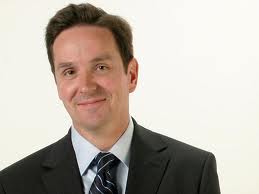By Eli Yokley
Legislation is pending that aims to do away with the State’s 20 solid waste management districts.

Sen. Kurt Schaefer, R-Columbia, has filed the legislation, SB13, in response to what he feels is an overly bureaucratic, outdated system.
The districts are currently funded by a $2.11 per ton tax on solid waste at sanitary landfills and a $1.41 per ton tax on waste at demolition landfills.
The districts are allowed to spend 50 percent of their budget on overhead and the rest is goes toward recycling, which was what the tax was established for during the 1990s.
“This is a good example of every decade or so, you need to go back and look at the reasons that led to a law in the first place,” he said. “They don’t on this.”
Schaefer’s bill proposes the districts be managed by the Department of Natural Resources, an already existing agency, allowing the State to save about $3 million on overhead costs. Schaefer’s bill would reduce the tax on sanitary landfills to $1.71 per ton and on demolition landfills to $1.20 per ton.
“We need the solid waste program at DNR to have more money for enforcement,” he said.
The bill has received opposition, particularly from districts in southwest Missouri, where they dealt with large amounts of waste and debris following the 2011 Joplin tornado. A massive amount of waste was sent to landfills across the region, allowing for a significant amount of funds to be raised to benefit recycling efforts in the region.
Schaefer believes more revenue could have been collected for the state at the time, however, if Missouri’s waste tax was more competitive than that of Kansas. The Kansas tax on solid waste is $1 per ton, which allowed many waste haulers to dump their debris at a cheaper location just across the boarder in neighboring Kansas.
“A lot of the waste from the Joplin tornado went right across the border into a new unlined landfill they created in Kansas to take all the waste and all the federal money that went along with it,” he said.
Schaefer, who said the issue was brought to his attention during his tenure as deputy director of the Department of Natural Resources, added that he believes if someone were to propose a similar plan during 2013, they would be ridiculed — noting that he felt the debate over the program is another argument for reviewing bills every decade.
“If you proposed right now in 2013, a statutory scheme like this where you were going to propose a tax and you would have a whole bureaucracy that do nothing but administer those grants — instead of using some existing mechanism and you’re going to allow them to spend 50 percent of what they spend on overhead,” he said. “That’s ridiculous.”
To reach Eli Yokley, email eli@themissouritimes.com, or via Twitter at @eyokley.



